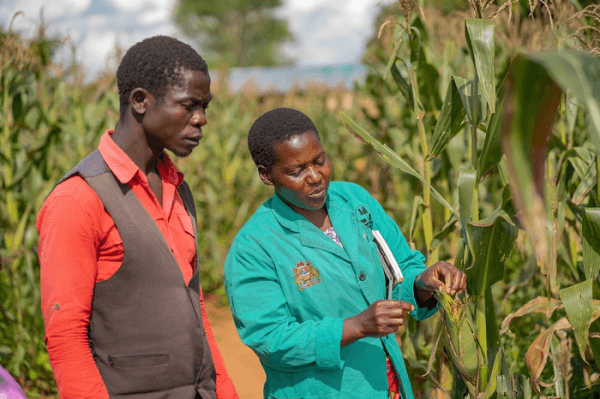CABI has contributed to new research which highlights the importance of and need for host plant resistance for fall armyworm (Spodoptera frudiperda) in maize as current maize production in Africa and Asia is under serious threat from the pest and exacerbated by climate change concerns.
expertise in invasive species management to the study which says there is ‘clear evidence of fall armyworm (FAW) resistance acting through diverse mechanisms in several maize landraces, germplasm lines, native populations, and crop wild relatives such as Antigua race, Zapalote Chico, FAW Tuxpeno, etc.’
The research, published in the journal Crop Science and led by Mr G. Mahendra Singh, calls for ‘a scheme that outlines strategies and approaches for pre-breeding and their introgression into elite varieties for developing FAW-resistant maize as a possible way forward’ to help secure maize production and the livelihoods of millions of smallholder farmers.
The review, conducted in part by the MARA-CABI Joint Laboratory for Bio-safety and with the Kunming Institute of Botany, World Agroforestry, Hexi University (China) and CABI’s centre in China, summarizes information about various maize landraces, native germplasm, and crop wild relatives possessing FAW resistance traits and about their potential resistance mechanisms, namely antibiosis, antixenosis and tolerance.
Read more at CABI
Image: A farmer and extension worker scout for fall armyworm on maize in Malawi. (Credit: CABI)


